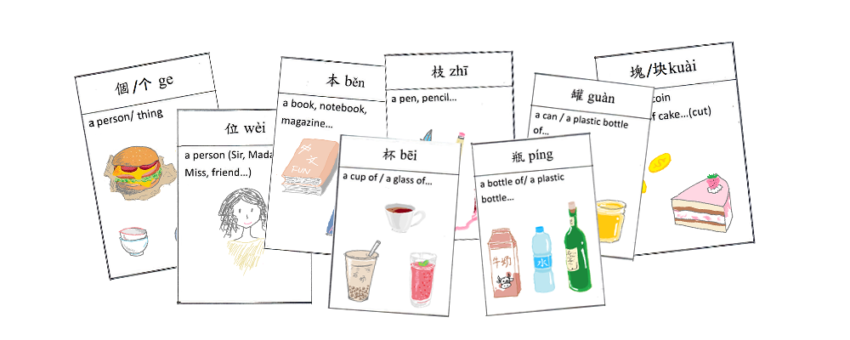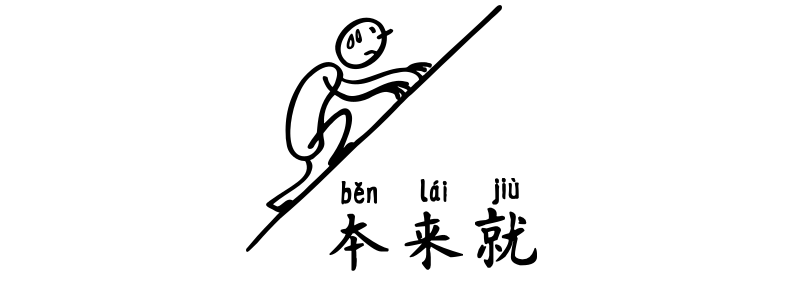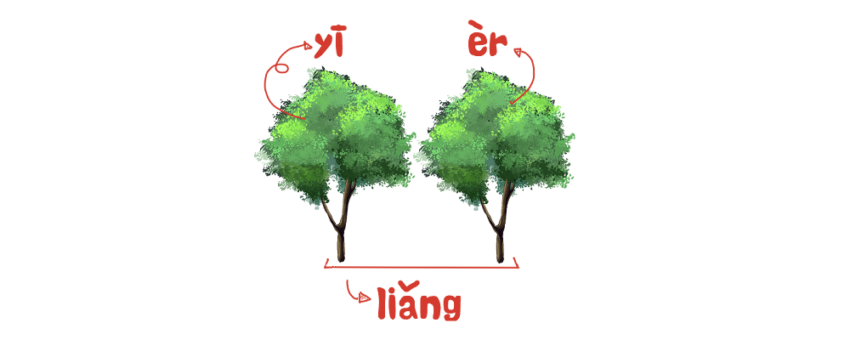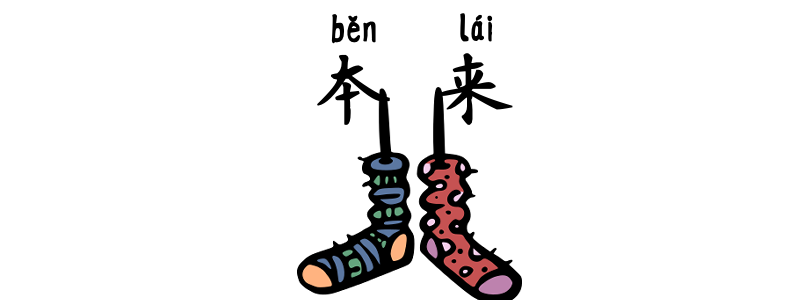Grammar Point:In Chinese, both 看起來来 kànqǐlái and 看上去 kànshàngqùshangqu are expressions used to describe how something appears or looks. They are often employed in similar contexts, with subtle differences in their usage. Ps. In my opinion, 看起來来 kànqǐlái is more commonly used in casual conversation, while 看上去 kànshàngqùshangqu more frequently appears in written forms. However,…
Author: tiffany
Measure Words – 個 ge and 張 zhāng
What is Measure Word A group of birds, a herd of cows. Similar to English, Chinese also uses measure words. However, Chinese uses them much more frequently than English. In English, you can say “There is a flock of birds” or “There are five birds.” In Chinese, we always need to use the specific measure…
“Once” in Chinese 1 – céngjīng
Grammar Point:The Chinese word 曾經曾经 céngjīng means “once” or “ever” and is used to describe something that happened or a condition that existed in the past. It conveys the idea of a past experience or a previous state. Structure S + céngjīng + 是 or 在 or 有 他tā曾經céngjīng是shì一位yíwèi有名yǒumíng的de醫生yīshēng他tā曾经céngjīng是shì一位yíwèi有名yǒumíng的de医生yīshēngHe was once a famous doctor. 這裡zhèlǐ曾經céngjīng是shì醫院yīyuàn,…
Already in Chinese 2 – yǐ and zǎoyǐ
Grammar Point:In Chinese, 已 yǐ and 早已 zǎoyǐ both convey a sense of “already.” However, 早已 zǎoyǐ specifically emphasizes that something has been done or occurred a long time ago or well in advance. Structure 已 yǐ 已 yǐ is a shorter form of 已經经 yǐjīng and is often used in formal or written language….
“Supposed to” in Chinese – běnlái jiù
Grammar Point:本來来就 běnlái jiù often implies “supposed to” or “it goes without saying,” indicating that something is expected or common knowledge. Structure S + běnlái jiù + something supposed to 學xué中文zhōngwén本來běnlái就jiù不bù容易róngyì学xué中文zhōngwén本来běnlái就jiù不bù容易róngyìLearning Chinese is inherently not easy. 穿chuān褲子kùzi本來běnlái就jiù比bǐ穿chuān裙子qúnzi方便fāngbiàn穿chuān裤子kùzi本来běnlái就jiù比bǐ穿chuān裙子qúnzi方便fāngbiànWearing pants is supposed to be more convenient than wearing a skirt. 這zhè本來běnlái就jiù是shì你的nǐde工作gōngzuò这zhè本来běnlái就jiù是shì你的nǐde工作gōngzuòThis is supposed to be your job….
Feelings in Chinese
Here’s a list of feelings vocabulary in Chinese: 開心kāixīn开心kāixīn – Happy 快樂kuàilè快乐kuàilè – Delighted 高興gāoxìng高兴gāoxìng – glad 愉快yúkuài愉快yúkuài – Pleased 滿意mǎnyì满意mǎnyì – Satisfied 輕鬆qīngsōng轻松qīngsōng – Relaxed 害怕hàipà害怕hàipà – Afraid 緊張jǐnzhāng紧张jǐnzhāng – Nervous 擔心dānxīn担心dànxīn – Worried 焦慮jiāolǜ焦虑jiāolǜ – Anxious 沮喪jūsāng沮丧jūsāng – Frustrated 難過nánguò难过nánguò – Sad 生氣shēngqì生气shēngqì – Angry 驚訝jīngyà惊讶liángyà – Surprised 好奇hǎoqí好奇hǎoqí – Curious 疑惑yíhuò疑惑yíhuò –…
二 èr and 兩 liǎng
The difference between 二 èr and 兩/两 liǎng In Chinese, both 二 èr and 兩两 liǎng mean “two.” However, we use them in completely different ways. When using 兩两 liǎng, it is placed in front of measure words to express quantity, whereas 二 èr is only used when counting numbers. The best way to remember…
Have and has in Chinese – 有 yǒu
Structure S + 有 yǒu + O This simple structure can express ownership. As Chinese does not have verb conjugation, it can be translated into English as have, has, or had. 我wǒ以前yǐqián有yǒu一yì隻zhī狗gǒu我wǒ以前yǐqián有yǒu一yì只zhī狗gǒuI had a dog before. 姊姊jiějie有yǒuiPhone 手機shǒujī姐姐jiějie有yǒuiPhone 手机shǒujīMy sister has an iPhone. 你nǐ有yǒu500 塊kuài錢qián嗎ma? 你nǐ有yǒu500 块kuài钱qián吗ma? Do you have $500? 你nǐ有yǒu空kòng嗎ma?你nǐ有yǒu空kòng吗ma?Do you have time?…
“Originally” in Chinese – běnlái
Grammar Point:The Chinese word 本來来 běnlái is an adverb that is used to indicate the original of something, and it’s often translated as “originally,” “initially,” or “origin.” Structure S + běnlái + V 他tā本來běnlái是shì一名yìmíng工程師gōngchéngshī, 後來hòulái轉行zhuǎnxíng當dāng老師lǎoshī他tā本来běnlái是shì一名yìmíng工程师gōngchéngshī, 后来hòulái转行zhuǎnxíng当dāng老师lǎoshīHe was originally an engineer but later switched to become a teacher. 你nǐ本來běnlái打算dǎsuàn去qù哪裡nǎlǐ度假dùjià? 你nǐ本来běnlái打算dǎsuàn去qù哪里nǎlǐ度假dùjià? Where did you originally plan to…
Chinese Noun Modifier 的 de
<的> 的 de is a Chinese noun modifier that can be used to indicate possession or link an adjective or verb phrase to a noun. V / Adj. / N+ 的 + N Tiffany 的de狗gǒuTiffany 的de狗gǒuTiffany’s dog (N + 的 + N) 可愛kěài的de狗gǒu可爱kěài的de狗gǒuCute dog (Adj + 的 + N) 我wǒ畫huà的de狗gǒu我wǒ画huà的de狗gǒuThe dog I draw (V + 的…









